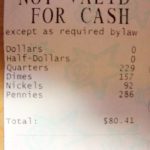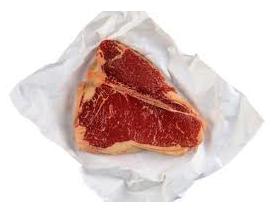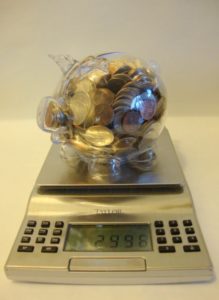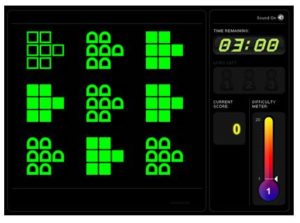 Here’s the answer to the Piggy Bank Challenge!
Here’s the answer to the Piggy Bank Challenge!
Coinstar was nice enough to provide all the data I needed after it consumed my coins. As you can see, there was $80.41 in the Piggy Bank. The coinage consisted of 286 pennies, 92 nickels, 157 dimes, and 229 quarters.
Let’s take a quick look at some interesting strategies involving using the weight of the Piggy Bank to make an educated guess as to the total value. I’ve made some general remarks about reader guesses in a separate post.
As previously mentioned, the weight of the full Piggy Bank was about 2996 grams. Using the weights of individual coins, we can set up this linear equation:
where P, N, D, and Q are variables representing the number of pennies, nickels, dimes, and quarters, and each coefficient is the weight of that coin in grams.
This equation has several uses. First, you can try to establish some bounds for the value of the Piggy Bank by considering extreme cases. What if all the coins were quarters? What if they were all pennies? These cases would likely produce the maximum and minimum possible value of the Piggy Bank (is that obvious?).
Or, if you had some idea about how the coins were distributed, you could use this equation to estimate the total value of the Piggy Bank. One place to start might be assuming that there are equal numbers of each kind of coin. What other distributions might be used?





